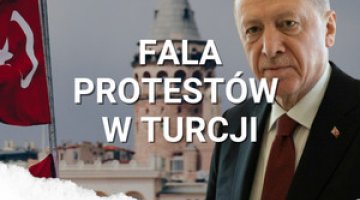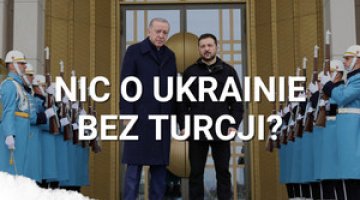Syria: renewed tensions between Turkey and the US
On 9 October, Turkish President Recep Tayyip Erdoğan warned the US that the downing of a Turkish drone by US forces in Syria would not be forgotten and promised to take the “necessary action when the time comes”. A day later, he reiterated his criticism of the US, accusing it of contributing to the escalation of the crisis around Gaza by taking steps such as the deployment of a US aircraft carrier to the conflict area. He also added that the downing of a Turkish drone was an example of how the US was undermining Turkey’s position as its NATO partner and went on to accuse the US of training and arming terrorist organisations in Syria, that is groups linked to the Kurdistan Workers’ Party (PKK).
Erdoğan’s remarks are related to an incident on 5 October when a US F-16 fighter jet shot down an armed Turkish drone which was conducting combat operations against Kurdish forces that had been cooperating with US troops in northern Syria. According to the US military, American soldiers stationed in the area undertook this operation in self-defence. The incident led to immediate consultations between the American and Turkish defence ministers. On 6 October, the Turkish foreign ministry issued a toned-down statement about the loss of its drone, in which it did not assign responsibility to US troops and instead promised to take steps to improve the coordination of operations conducted by the two countries’ forces on Syrian territory.
Commentary
- Since 1 October, Turkey has been carrying out airstrikes on Iraqi and Syrian territory against Kurdish forces, which it considers to be an emanation of the terrorist PKK, while also targeting critical infrastructure in those areas. These operations have been conducted in retaliation for the PKK-organised terrorist attack on the headquarters of the Turkish interior ministry in Ankara on 1 October. They are part of a series of counter-terrorism operations in Syria and Iraq that Turkey has been carrying out for years to a varying degree to combat PKK factions and their affiliated organisations, such as the Syrian Democratic Forces (SDF), which include the mainly Kurdish People’s Defence Units (YPG). Turkish operations against the SDF/YPG have long been a source of strong disputes between Turkey and the US, as the latter considers the Syrian Kurds to be a loyal ally in the fight against Islamic State and thus provides them with training, arms and political protection. Therefore, from the perspective of Turkey (both its elites and most of its population), US policy has in fact directly undermined the country’s strategic interests and internal security. Against this backdrop, Turkey and the US have been embroiled in numerous heated political disputes while Syria has become the external arena for these tensions, which are supposed to be managed through mechanisms for coordination and de-escalation. The downing of the Turkish drone on 5 October was the most serious incident involving the armed forces of both countries to date.
- Swift action from both sides to keep the conflict from getting out of control and the subsequent toned-down statement from the Turkish foreign ministry the day after the drone was shot down hinted at a mutual desire to prevent political escalation. This attitude probably stemmed from the two countries’ reluctance to fan the flames of the dispute in Syria. In addition, for several months now, Turkey and the US have been exploring the possibility of resolving the major sticking points: returning to dialogue on the sale of F-16s to Turkey, which faces a roadblock in the US, and approving Sweden’s admission to NATO, which Turkey has blocked. They have also sought to improve relations at the strategic level.
- Erdoğan’s remark on 9 October that promised ‘revenge’ for the downing of the Turkish drone suggests a sudden shift in Turkey’s stance. This is most likely motivated both by domestic pressures, including strong anti-PKK and anti-US sentiment at home, as well as the political and military escalation in the Gaza Strip. The crisis around Gaza and the firm US support for Israel have reinforced the traditionally pro-Palestinian and anti-US sentiment in Turkey. Moreover, at least in Turkey’s own eyes, these developments have strengthened its position vis-à-vis the US amid the growing regional crisis. Therefore, we should expect Turkey to harden its stance towards the US, mainly by continuing and stepping up its operations in Syria and Iraq, which will carry the risk of more incidents. In addition, the prospects for the Turkish parliament’s ratification of Sweden’s NATO membership have become uncertain once again. The parliament was expected to take this step soon after the start of its session in October, but in the current conditions neither the introduction of this item to its agenda nor the outcome of the vote can be considered a foregone conclusion. The US has also taken a principled approach to these issues: in the wake of its spectacular and much-publicised downing of the Turkish drone, on 12 October the White House reaffirmed and once again extended the 2019 executive order which declared that the situation in Syria was of special importance to US security and paved the way for the introduction of sanctions against Turkish entities that violate those interests.




